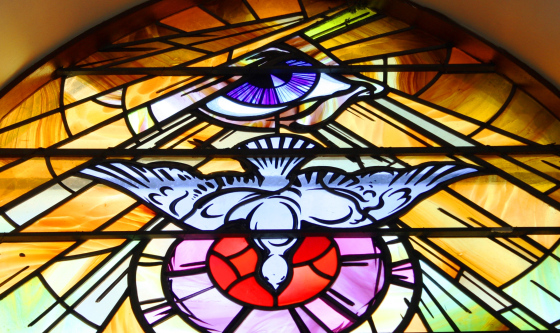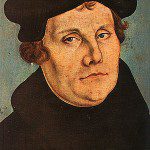In some ways, one might say the one true God is no different from false gods.
 In a recent article, translated on Chinese Church Voices, a Xinjiang pastor writes on the topic of discerning true and false gods. He specifically seeks to help churches wrestling with cults like Eastern Lightening. Accordingly, the pastor suggests one focus on the essential attributes of God. He mentions the following:
In a recent article, translated on Chinese Church Voices, a Xinjiang pastor writes on the topic of discerning true and false gods. He specifically seeks to help churches wrestling with cults like Eastern Lightening. Accordingly, the pastor suggests one focus on the essential attributes of God. He mentions the following:
1. God is spirit. He not only has life but also person-hood.
2. God is infinite, unchanging from everlasting to everlasting and eternally existent.
3. God is complete in himself, faithful, and full of compassion, righteousness, holiness and peace.
4. All things originate and end in God, he is omnipresent, omniscient and omnipotent.
This list is full of wonderful truths. I’m thankful for his efforts.
However, as I reflected further, I grew more troubled. It is not that the pastor has said anything that is wrong; rather, the major problem is what it omits. The consequences are serious.
I’ll list my two biggest concerns and then give my thoughts on what causes this problem.
(1) Arguably, many Muslim and certain other religions would claim their god shares these attributes.
(2) There is no mention of Christ in the article, except for a passing reference in a verse cited from 2 Corinthians.
What are some possible causes and consequences behind these problems?
(By the way, I think this pastor is not unique. I think he is typical of many faithful pastors who speak what is true but miss some of the most critical points of Scripture.)
(1) Systematic theology replaces biblical theology.
Many Christians tend to emphasize systematic theology. This is particularly true of those influenced by the Western church, including Western missionaries. The Chinese church has largely adopted uncritically this emphasis.
In time, when people teach systematic theology more than exegesis (i.e. biblical interpretation), then it will not be long before we start to talk about God primarily in abstract terms—such as his attributes. Typically, this is the talk of the systematic theologian, not the Bible itself.
How does the Bible most often describe God?
He is the Lord, “the God of Abraham, Isaac, and Jacob.” He is the God who led Israel out of Egypt, etc . . . . The one true God is the God of history, not philosophy. He is known by what he does in concrete historical and cultural contexts. He is the God of the whole world. Therefore, he is the Creator King who challenges anyone who presumes to have supreme authority over their land or country.
(2) Christ is left out.
In keeping with the previous point, the one true God is known through the revelation of Jesus Christ. Cults can construct a “god” that resembles God in attributes; yet, it is Christ who makes clear the kind of God we serve. Mysteriously, this God entered history, suffered at the hands of his created image bearers, and overcomes all evil and death via the resurrection.
These are not minor points among countless others that could be named. They are essential to knowing the one true God. It is Christ alone that clearly distinguishes the one true God from all other false gods.
I’m not against systematic theology at all. I myself teach systematic theology courses. The point is one of methodology and emphasis. Systematic theology (and thus our theological traditions) can quickly begin to usurp faithful interpretation of Scripture. This happens whenever we lack exegetical skills or get to busy (or lazy) to do the hard work on biblical interpretation. Functionally, our seminary teachers and pastors trump the Bible in terms of authority.
We cannot distinguish their interpretations from the Bible itself.
I appreciate the labor of Christian pastors who want to protect their flock from cults. Yet, this does not mean we can compromise the gospel by settling for truth. We must rethink our priorities, not settling for true truths taught by systematic theology. Instead, I urge us to train people in the process of interpreting Scripture. That is a distinct skill set that is too often assumed or neglected.
Photo Credit: CC 2.0/wikipedia
Related articles
- Critiquing Creation to Christ (C2C) (www.patheos.com/blogs/jacksonwu)
- Taking the Context out of the Bible? (www.patheos.com/blogs/jacksonwu)













